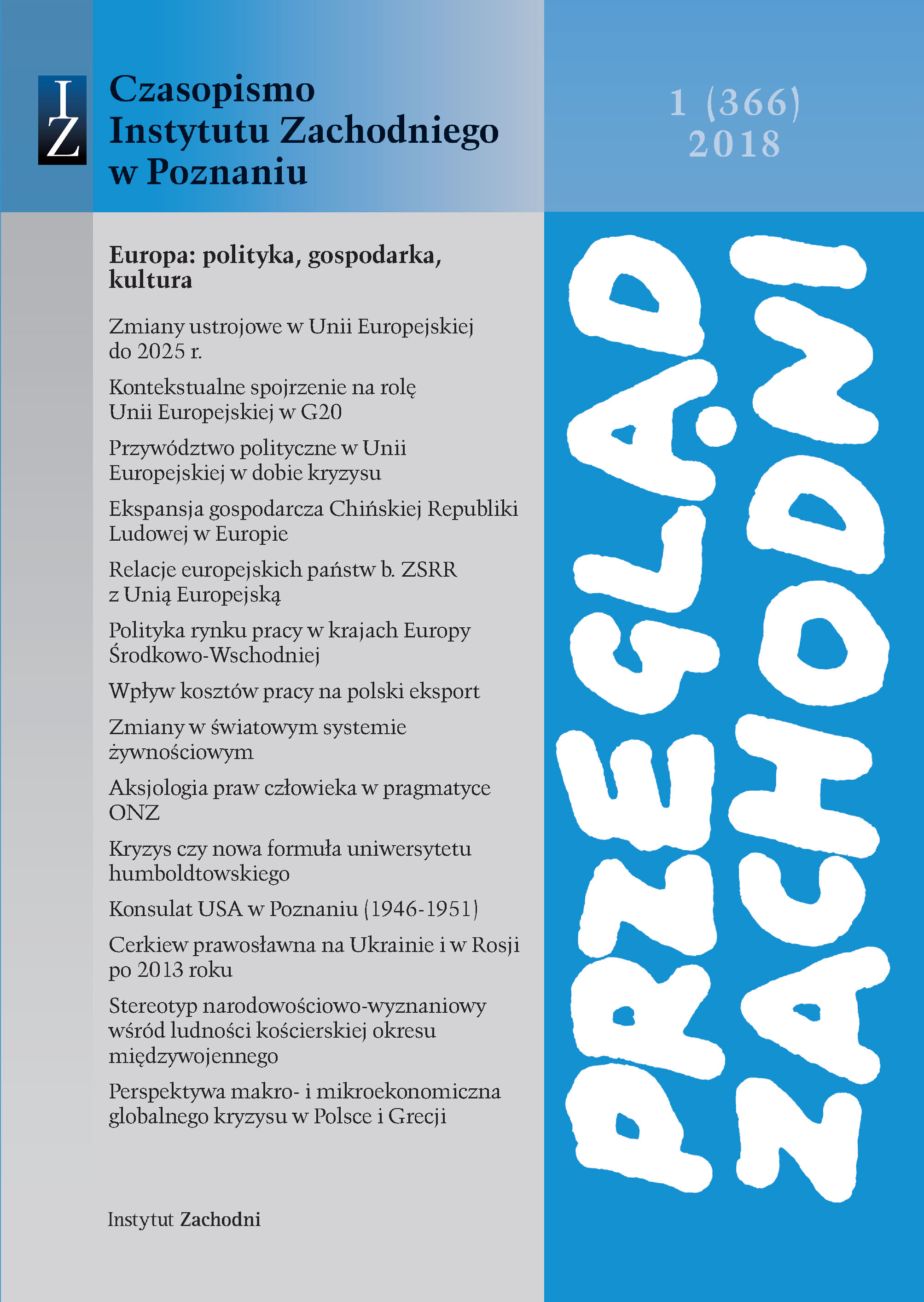Polak-katolik, Niemiec-ewangelik – obecność stereotypu
narodowościowo-wyznaniowego wśród ludności kościerskiej okresu międzywojennego (1920-1939)
A Polish Catholic, a German Evangelical – the presence of a national and confessional stereotype among the inhabitants of Kościerzyna in the interwar period (1920-1939)
Author(s): Julita RachwalskaSubject(s): Ethnohistory, Sociology of Religion
Published by: Instytut Zachodni im. Zygmunta Wojciechowskiego
Keywords: stereotype; Poles; Germans; Kashubians; Catholic; Evangelical; the interwar period
Summary/Abstract: The purpose of the article is a portrayal of a stereotypical national and confessional notion of a Polish Catholic and German Protestant during the interwar period (1920-1939) in Kościerzyna as well as a complementation of the results of general studies of the town’s history. The assumption stating that the existing stereotype was formed during the Reformation as an aftermath of the encounter between two dissimilar sets of culture, nationality and faith points towards the stereotype’s durable character as well as its prevalence and influence on how the individuals belonging to the two realms perceived one another. This has rendered questions regarding the origins of the said stereotype extremely urgent, in particular with regard to Kościerzyna as part of Kashubia. Furthermore, the characteristic traits and the content of the stereotype is another area of inquiry. Thirdly, what factors shaped the body of the above mentioned stereotype and how it was perpetuated in the communal mind is another matter of interest. An exhaustive analysis of the archival sources including population records, documents drawn by the town’s public servants and a district office’s reports allowed to recreate the town’s ethnic structure in the period of 1920-1939 and proved that German Catholics and Polish Protestants were found among its inhabitants. That said, analysis of the body of the literature, the press, written memoirs and collected interviews (based on Jan Błuszkowski’s statute concept of a stereotype) revealed that the essence of the stereotype is rooted in associating nationality with confession, a dualistic notion of us versus them and other characteristic features such as durability, irrelevance of experience, activation of language, emotionally-burdened valuingand reliance on a partially twisted image of the investigated community.
Journal: Przegląd Zachodni
- Issue Year: 366/2018
- Issue No: 01
- Page Range: 211-223
- Page Count: 13
- Language: English, Polish

